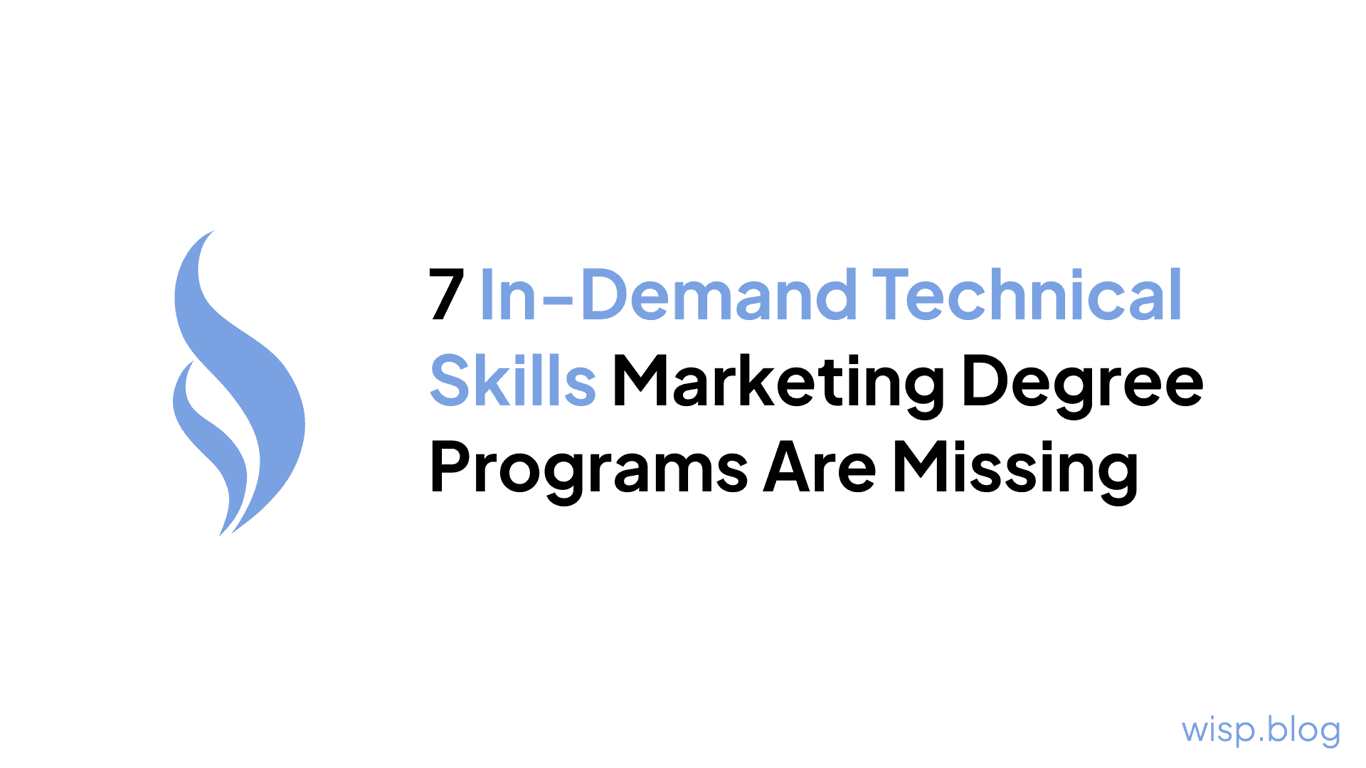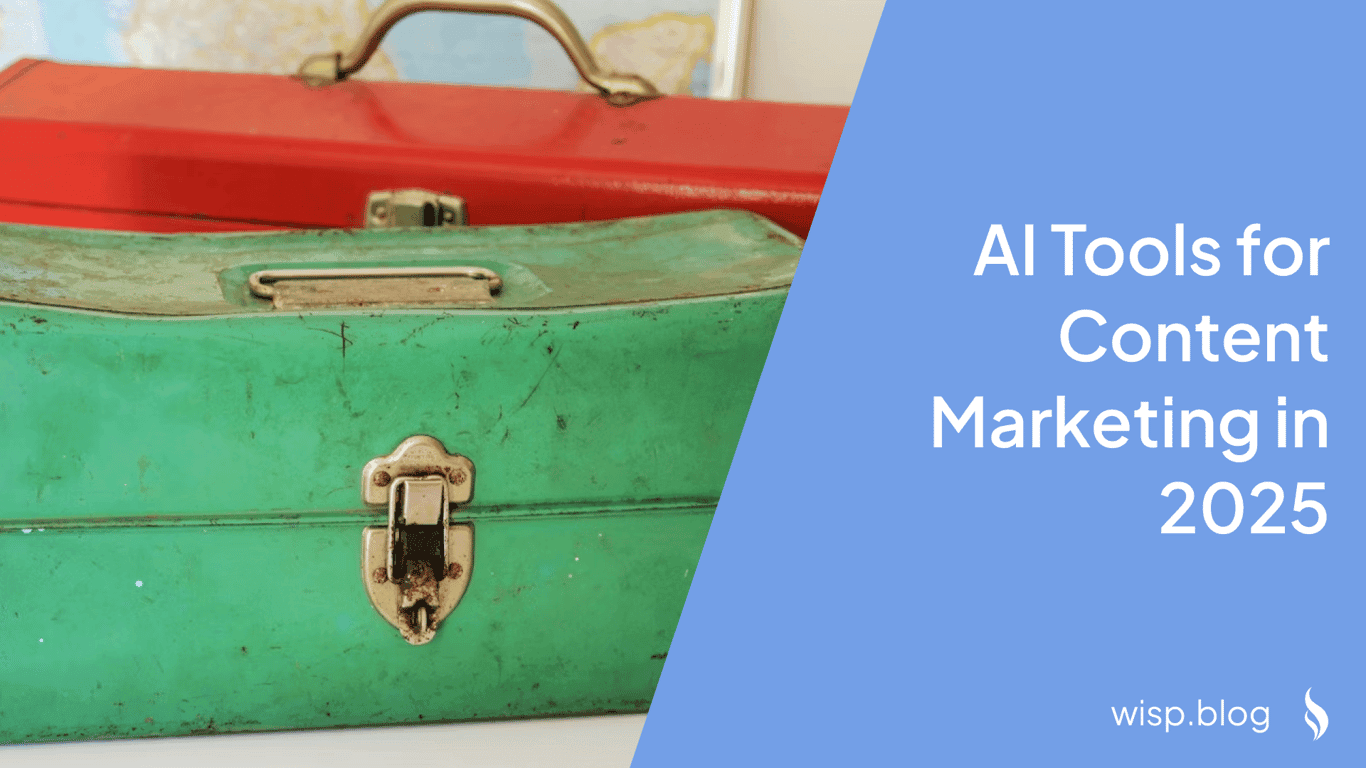
You've probably noticed how marketing job descriptions are becoming increasingly technical. What used to be straightforward roles focused on creativity and communication now demand proficiency in data analytics, AI tools, and complex marketing technologies. As one marketer shared on Reddit, "I don't have any technical background. I can always upskill myself but there's an extent to it."
This growing technical complexity, combined with AI enabling non-marketers to perform many marketing tasks, has created genuine anxiety about job security and career progression in the marketing field. But here's the thing - while the landscape is changing, it's also creating unprecedented opportunities for marketers who can adapt and embrace these technical skills.
The Evolution of Marketing Skills
The marketing profession is undergoing a dramatic transformation. Traditional marketing skills alone are no longer sufficient to thrive in today's data-driven, AI-enhanced environment. As we approach 2025, the most successful marketers will be those who can blend creative thinking with technical expertise.
1. Data Analytics Proficiency
Perhaps the most crucial technical skill for future marketers is data analytics. The ability to collect, analyze, and derive actionable insights from data has become fundamental to marketing success. This includes:
Statistical Analysis: Understanding basic statistical concepts and their application in marketing
Data Visualization: Creating compelling visual representations of data using tools like Tableau or Looker
SQL Knowledge: Basic querying skills to extract and manipulate marketing data
Python Programming: Basic programming skills for data analysis and automation
2. AI and Machine Learning Fundamentals
With AI reshaping the marketing landscape, understanding its capabilities and limitations is crucial. As noted in recent discussions, "AI is enabling non-marketers to do many marketing tasks". Key areas include:
AI Tool Proficiency: Mastery of AI-powered marketing tools and platforms
Prompt Engineering: Creating effective prompts for AI content generation
Machine Learning Basics: Understanding how AI models work and their marketing applications
Automation Workflows: Setting up and managing AI-powered marketing automation
3. Marketing Technology Stack Management
Modern marketers need to be comfortable working with various marketing technologies (MarTech). This includes:
CRM Systems: Proficiency in customer relationship management platforms
Marketing Automation Tools: Experience with platforms like Marketo or HubSpot
Analytics Platforms: Mastery of tools like Google Analytics 4 and Adobe Analytics
Content Management Systems: Working knowledge of popular CMS platforms
4. Technical SEO and SEM Skills
While basic SEO knowledge has been important for years, technical SEO skills are becoming increasingly crucial. This includes:
Website Architecture: Understanding how site structure affects SEO
Mobile Optimization: Ensuring websites perform well on mobile devices
Schema Markup: Implementing structured data for better search visibility
Core Web Vitals: Optimizing for Google's performance metrics
Leveraging AI Trends in Marketing
The rise of AI has introduced new possibilities and challenges in marketing. Here's how to leverage current AI trends effectively:
1. Content Creation and Optimization
AI tools are revolutionizing content creation, but success lies in knowing how to use them strategically:
AI Writing Assistants: Tools like ChatGPT and Jasper for content generation
SEO Optimization: AI-powered tools for keyword research and content optimization
Image Generation: Platforms like DALL-E and Midjourney for visual content
Content Personalization: AI-driven systems for delivering personalized content at scale
2. Customer Analytics and Insights
AI is transforming how we understand and interact with customers:
Predictive Analytics: Using AI to forecast customer behavior and trends
Customer Segmentation: Advanced AI-powered customer clustering
Sentiment Analysis: Monitoring brand perception through AI tools
Behavioral Analytics: Understanding customer journeys through AI insights
3. Marketing Automation and Personalization
The future of marketing lies in intelligent automation:
Dynamic Content: AI-powered content that adapts to user behavior
Email Marketing: Smart segmentation and personalized email campaigns
Chatbots: AI-powered conversational marketing
Campaign Optimization: Automated A/B testing and optimization
Essential Skills Development Strategy
To prepare for the marketing landscape of 2025, focus on these key areas:
1. Technical Foundation Building
Start with the basics:
Learn SQL for data analysis
Master Excel for data manipulation
Understand basic programming concepts
Get comfortable with marketing automation tools
2. AI and Machine Learning Education
Develop AI literacy:
Take online courses in AI fundamentals
Practice with AI tools regularly
Join AI marketing communities
Experiment with prompt engineering
3. Continuous Learning and Adaptation
Stay current with industry changes:
Follow marketing technology blogs
Participate in webinars and workshops
Network with other marketing professionals
Experiment with new tools and technologies
Avoiding Common Pitfalls
As you develop your technical marketing skills, be mindful of these common mistakes:
Over-reliance on AI Tools: While AI is powerful, it shouldn't replace human creativity and strategic thinking
Neglecting Privacy and Ethics: Always consider data privacy regulations and ethical implications
Focusing Too Narrowly: Don't specialize too early; maintain a broad understanding of marketing principles
Ignoring Soft Skills: Technical skills must be balanced with communication and collaboration abilities
Looking Ahead
The marketing landscape of 2025 will reward those who can effectively combine technical expertise with traditional marketing skills. As one marketer noted, "it'll take more than marketing skills to stay valuable to employed."
The key is to view technical skills not as a replacement for traditional marketing knowledge, but as tools that enhance your ability to create more effective, data-driven marketing strategies. By developing these technical capabilities while maintaining strong marketing fundamentals, you'll be well-positioned for success in the evolving marketing landscape of 2025 and beyond.
Remember, the goal isn't to become a technical expert in every area, but to develop enough proficiency to effectively leverage these tools and technologies in your marketing efforts. Start building these skills today, and you'll be ready for the marketing challenges of tomorrow.



